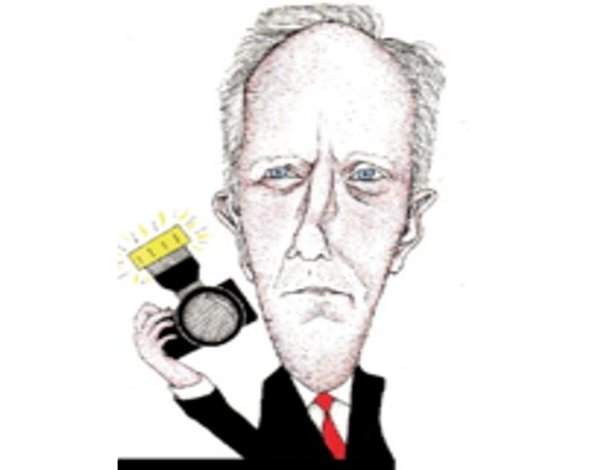

The Leveson Inquiry and its aftermath saw famous and fêted figures — including Rupert Murdoch and Paul Dacre, editor of the Daily Mail — pilloried. In September there was a second helping of Schadenfreude as senior BBC figures, including BBC Trust chairman Lord Patten, were hauled before MPs to be quizzed like pupils in front of the headmaster, while in October the Ralph Miliband affair brought more opprobrium on the Mail.
Read more on journalism and free speech from Spear’s
Politicians of all sides have piled in. Jeremy Hunt, former culture secretary, says the BBC Trust isn’t fit for purpose. J K Rowling and the McCanns have simultaneously attacked newspaper plans for a regulator, arguing that it’s insufficiently independent or tough.
Controlling interest
Looking at this process from the outside, most impartial observers would conclude that our press was wholly out of control and needed to be sharply reined in. As it happens, I believe the opposite is the case.
Take the BBC first. There are serious issues about the Corporation’s licence-fee-funded website and the way in which its huge wealth of content is crowding out potential commercial competitors. As the various content streams — broadcast, print, web — converge, this will become more of a problem.
By contrast, the decision of the BBC executive to overpay a few departing executives, many of whom were being sacked as part of a longer-term cost-cutting drive, is hardly headline news. Many organisations are generous to departing managers who have worked for them for decades — it’s often a sign of decency, not cronyism.
But politicians who have so often in recent years been on the receiving end of criticism from the UK media now have an extended opportunity to take their revenge, to humiliate those who made life miserable for them.
The same is true of press regulation. Some parts of the UK press behaved very badly by hacking into the voicemail messages of celebrities and others. They were caught — as it happens largely as a result of investigations by other journalists — and will stand trial. They had broken an existing law. Changing press regulation wouldn’t have prevented phone hacking.
In Britain, we have an extensive set of laws that controls the behaviour of the press. We have libel laws, and if the media publish defamatory comments about people that they can’t prove, they will find themselves in court. We have laws on privacy, introduced by the back door through the Human Rights Act, but none the less effective for that.
We also have numerous other laws that affect the press, including those on data protection. There are more legal constraints on the behaviour of the media in Britain than in most other countries worldwide, which is why we are known as the world’s libel capital.
Given all this, it’s far from clear that a tougher system of media regulation is required. But it is easy to understand why politicians and celebrities might want it. The UK media is ruthless, it is commercial, it is often hypocritical, it does take a prurient interest in the private lives of the rich and famous in ways which can often not be justified by any definition of public interest.
Humble servants
And yet… we also have a public life which, despite the many rude things written about MPs, is remarkably free of corruption. Most British public servants are honest and relatively badly off. MPs are poorly paid and, with a few really stupid exceptions, don’t break the rules to supplement their income.
Civil servants work long hours for much less money than they could earn in the private sector. Judges may be pompous but they cannot be bought. Many public contracts are awarded to the wrong people, but because of incompetence, not backhanders.
All this — which is emphatically not true of many other democracies — happens in part because of our press. It happens because the Daily Mail, the BBC, the Guardian and thousands of tiny newspapers and radio stations hold our public servants to account.
So perhaps the British should stop attacking their media for the moment and instead take a moment to enjoy the brilliant programming that makes the BBC so vibrant right now, and the robust and exciting journalism in the Mail that infuriates so many. And to consider, for a second, whether all those currently being so critical may just possibly have an axe to grind.






